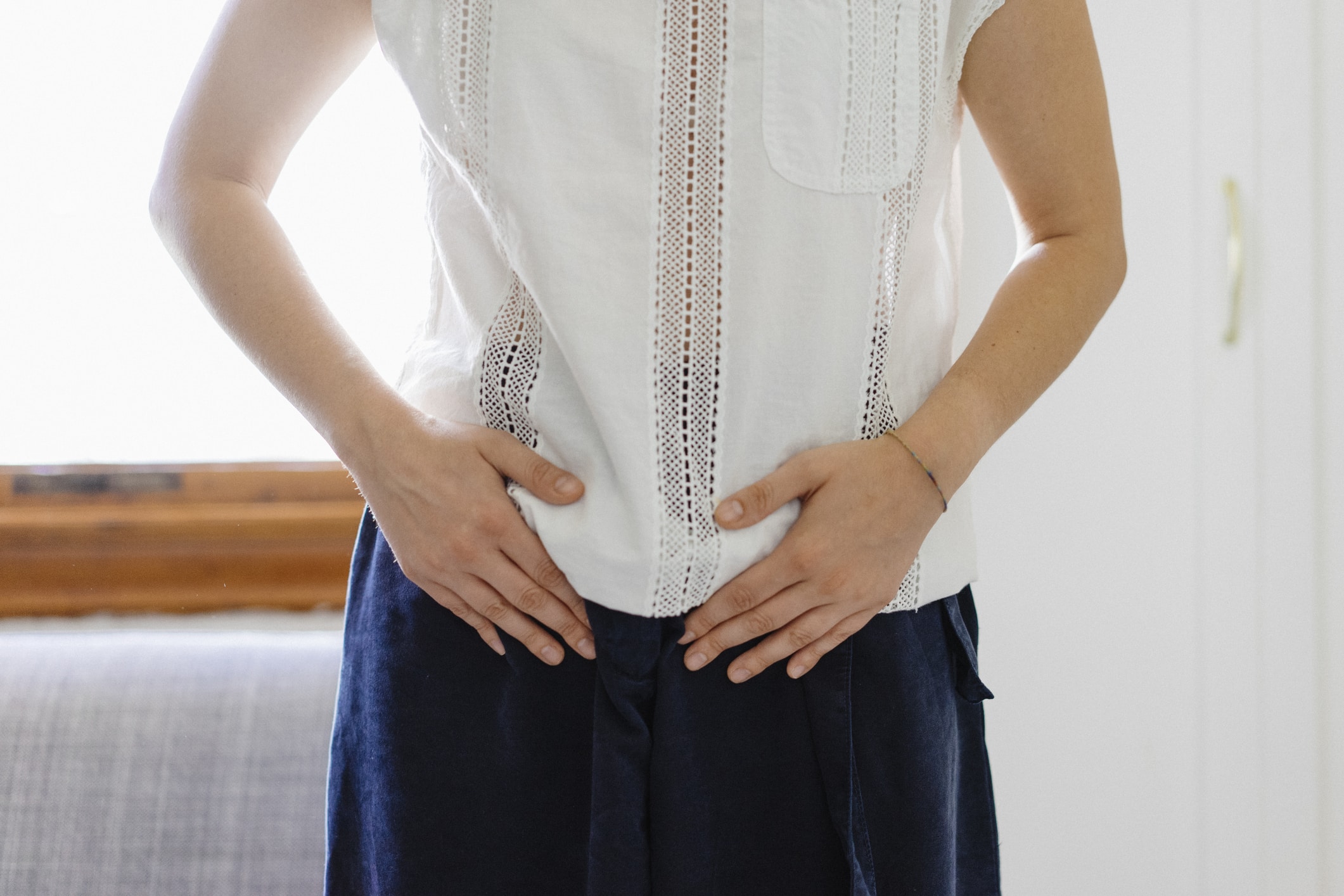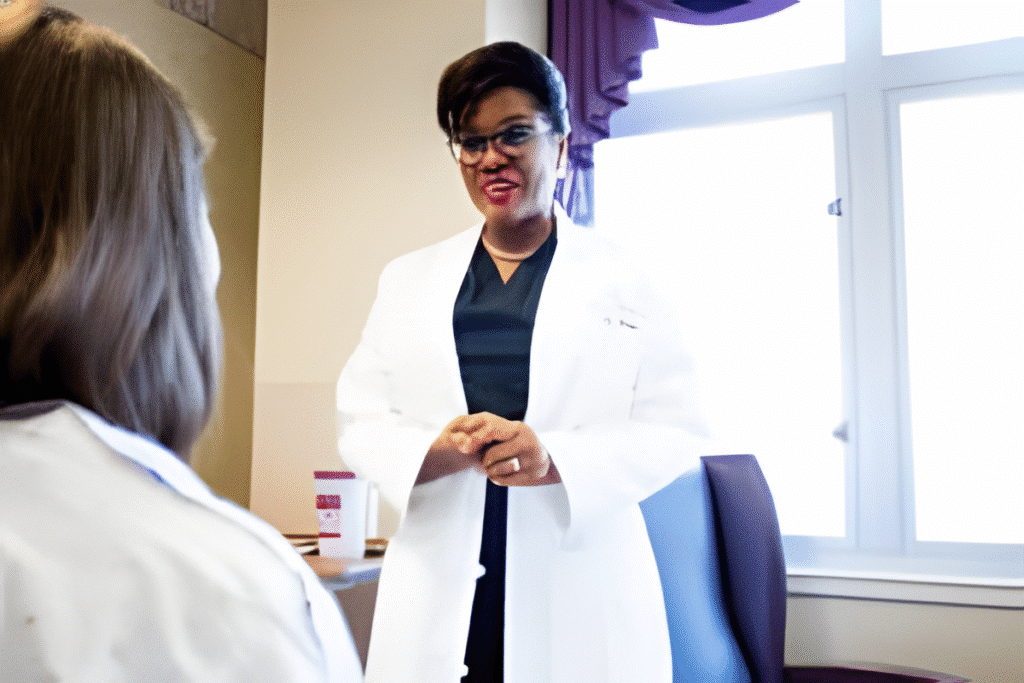
What Are Uterine Fibroids?
Uterine fibroids, also called leiomyomas or myomas are noncancerous growths that develop from the muscle tissue of the uterus. These tumors vary in size, shape, and location within the uterine lining. They may be present inside the uterus, on its outer surface or within its wall, or attached to it by a stem-like structure.
There are women that may have only one fibroid or many of varying sizes. The growth pattern of fibroids could vary as they may remain very small for a long time and suddenly grow rapidly, or grow slowly over a number of years.
Who Is Likely To Have Uterine Fibroids?
Uterine Fibroids are more prevalent in women between the ages of 30 and 40, however, they can occur at any age. African American women have leading cases in fibroids in contrast to other women. The exact cause of uterine fibroids is unknown, but it is speculated that hormones and genetics play a role in the development.
Uterine Fibroids Symptoms
There have been cases in which fibroids cause no symptoms and are found during a routine pelvic exam, or tests or other problems. Although, if you are experiencing the following symptoms, this could be due to fibroids. Some common symptoms include the following:
- Menstrual pain or cramps
- Vaginal bleeding at times other than menstruation
- Longer, more frequent, or heavier menstrual periods
- Anemia from blood loss
- Pain during sex
- Dull, heavy, or sharp pain in the abdomen or lower back
- Enlargement in the uterus or abdomen
- Difficulty or frequent urination
- Constipation, rectal pain or difficult bowel movements
- Abdominal Cramps
- Hemorrhoids

Complications Caused By Uterine Fibroids
Uterine fibroids can prevent an embryo from implanting and growing. In rare cases, uterine fibroids can be the cause of infertility and complications during pregnancy. Additionally, if fibroids are present there is an increased risk of having a premature delivery. If a patient has uterine fibroids, Columbus Women’s Care recommends removing the uterine fibroids before attempting to get pregnant again.
How Is Uterine Fibroids Diagnosed?
Since many patients do not show symptoms, it is common that uterine fibroids are only discovered during a pelvic exam. For patients who have symptoms, our providers at Columbus Women’s Care can confirm the diagnosis. Our office uses blood tests as well as imaging tests to confirm the diagnosis. Imaging exams include ultrasounds, hysterosonography, MRI scan, hysterosalpingography.

Uterine Fibroids Treatment
In cases where patients are not experiencing symptoms, no treatment is immediately necessary. We will monitor the progress so the uterine fibroids do not cause symptoms to eventually occur. For those with symptoms, both drug therapy and surgery are options for uterine fibroid treatment in women.
Drug treatments may not prevent the growth of fibroids, however, they are able to minimize your symptoms. Our uterine fibroid treatment options include the following:
- Birth Control Pills: Hormonal birth control methods have the ability to control heavy bleeding and painful periods.
- Hysterectomy: This is a surgical procedure that removes uterine fibroids that protrude into the cavity of the uterus. This is only an option for women who no longer want to have children as we remove the entire uterus.
- Endometrial ablation: This is an option for women with small uterine fibroids that are less than 3 centimeters. This procedure destroys the lining of the uterus.
- Uterine artery embolization: This procedure is conducted through tiny incisions in the abdomen. The objective of treatment is to cut off the circulation of blood to individual uterine fibroids, thus causing them to shrink.
Do Fibroids Become Cancer?
It’s understandable that many women who develop fibroids worry that their condition is an indication of cancer. Fortunately, this is very rarely the case. Fewer than 1 in 1,000 uterine fibroids become cancerous. The vast majority of these growths are noncancerous. Furthermore, being diagnosed with uterine fibroids does not mean that you have an increased risk of developing cancer in the future. Knowing this, you and your doctor can focus on addressing the symptoms of your fibroids using the most conservative options first.
Can I Get Pregnant if I Have Fibroids?
Fibroids do not typically affect a woman’s ability to become pregnant. Studies suggest that five to 10 percent of women who experience infertility have uterine fibroids. Only one to two percent of infertility cases are solely caused by fibroids. That said, fibroids can affect an otherwise healthy pregnancy. Your doctor can discuss the following in more detail with you should you become pregnant:
- Enlargement of existing fibroids due to increased circulation to the uterus.
- Pain, pressure, or abdominal discomfort due to enlarged fibroids.
- Increased risk of needing a cesarean section due to the presence of fibroids.
- Preterm delivery (before 37 weeks).
- Increased chance of breech birth due to abnormal uterus shape.
Do Fibroids Require Surgery?
According to research, fibroids are the most common reason women undergo hysterectomy surgery. That said, modern medicine has alternative solutions to the pain and other symptoms caused by benign growths in or on the uterus. While you may choose to have a hysterectomy if you’ve already had children and do not have any preference about preserving your uterus, you and your doctor have several treatment options to explore.
Uterine fibroid embolization is a minimally invasive treatment that offers several benefits. Performed using general anesthesia or a form of regional anesthesia, this image-guided procedure obstructs the circulation of blood to individual fibroids to halt their growth. Without blood supply, the tumors may shrink a great deal.
Depending on the size of your fibroids, your doctor may simply prescribe oral contraceptives. Studies have shown that birth control pills may slow the growth of existing fibroids. This treatment may also reduce the symptom of heavy menstrual bleeding that’s caused by fibroids. Keep in mind that, though effective at slowing growth, taking birth control pills will not shrink the fibroids that you do have.
Can I Still Get Fibroids as I Approach Menopause?
The time leading up to menopause is referred to as perimenopause. Studies indicate that it is when a woman is in perimenopause that she’s most at risk of developing uterine fibroids. The reason is that, during this transition from normal menstruation to non-menstruation, a woman’s estrogen levels can increase significantly. At the same time, her progesterone levels may decline. This leads to estrogen dominance, and fibroids depend on estrogen for their abnormal growth. The good news here is that, once estrogen decline stabilizes in menopause, fibroids may shrink. The not-so-good news is that, until that time, symptoms of fibroids can be a source of discomfort.
Your doctor is a great source of information, diagnostic data, and support as you transition into menopause. If you’re experiencing the symptoms of uterine fibroids as you approach menopause, you have options to reduce them that don’t have to involve surgery.
Schedule A Consultation
If you would like to learn more about uterine fibroids treatment, call (614) 755-4200 to schedule an appointment. Columbus Women’s Care serves Columbus, OH, and surrounding areas.